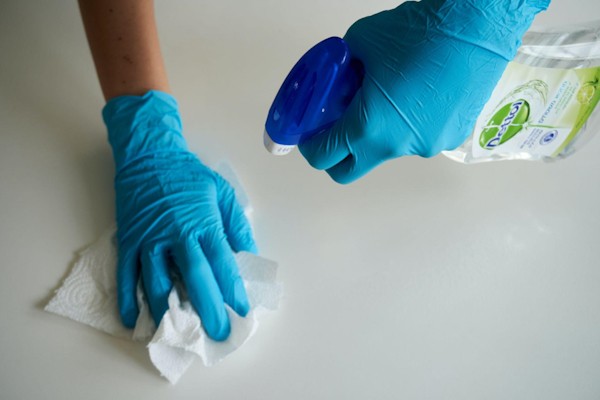Contact Information:
Published Content
The Impact of a Clean Living Space on Your Health
In an era where life's pace only seems to quicken, the value of a clean living space can often be overshadowed by the hustle and bustle of daily commitments. Yet, the importance of maintaining cleanliness in our personal environments extends far beyond mere appearances.
It is a pivotal aspect that significantly influences our physical, mental, and even emotional health. This detailed exploration delves into the myriad ways in which a clean and orderly living space can profoundly impact our overall well-being.
House cleaner basics is not just a product or a service, but a lifestyle choice. It sheds light on the intricate relationship between our environment and our health, offering insights into how something as simple as regular cleaning can lead to substantial improvements in our quality of life.

The Connection Between Cleanliness and Physical Health
Cleanliness has a direct and substantial impact on our physical health. A clean environment is instrumental in preventing the spread of germs and reducing the risk of illness.
Regular cleaning routines, which involve disinfecting surfaces and maintaining a dust-free environment, are essential in eliminating harmful bacteria and viruses that can lead to health complications.
For individuals who suffer from allergies or respiratory conditions like asthma, maintaining a dust-free environment is not just beneficial; it's crucial for their health and comfort.
Regular household chores like dusting, vacuuming, and ensuring proper ventilation can significantly improve the air quality in a living space, thereby reducing the likelihood of respiratory problems and allergic reactions.
Mental Health Benefits of a Clean Living Space
Beyond the realm of physical health, the cleanliness of our living environment also has a profound impact on our mental well-being. A cluttered and chaotic space can lead to increased stress and anxiety, contributing to a general sense of unease and disorganization. In contrast, a clean and orderly environment promotes feelings of calm, control, and satisfaction.
Psychological studies have consistently shown that individuals living in cleaner environments exhibit lower stress levels, better mood regulation, and a decreased propensity for mental health issues compared to those living in cluttered spaces.
The act of cleaning itself can be a therapeutic exercise, offering a sense of achievement and orderliness.
The Science Behind Cleanliness and Health
The relationship between cleanliness and health is rooted in robust scientific evidence. Studies in fields ranging from microbiology to psychology have shed light on this connection. For instance, microbiological research has shown that regular cleaning reduces the presence of harmful pathogens that can cause disease.
On the psychological front, environmental psychology has provided insights into how physical spaces affect our cognitive processes and emotional states. A study in the "Journal of Environmental Psychology" found that individuals in clean, organized environments experienced higher levels of concentration and productivity.
These findings are a testament to the fact that cleanliness has a direct impact on our daily functioning and overall health.
Practical Tips for Maintaining a Clean Living Space
Maintaining a clean living space is an art that can be mastered with the right approach. Here are some enriched tips:
● Create a Cleaning Calendar: Assign specific days for different cleaning tasks. This methodical approach prevents tasks from becoming overwhelming.
● Decluttering as a Habit: Make decluttering a regular activity. Spend a few minutes each day sorting through mail, clothes, or other items, deciding what to keep, discard, or donate.
● Embrace Minimalism: A minimalist approach can significantly reduce the burden of cleaning and organizing. Fewer possessions mean less to clean and organize.
● Green Cleaning Solutions: Consider using natural cleaning agents like vinegar, baking soda, and lemon. These are not only effective but also environmentally friendly and safe for health.
● Involve Family Members: Turn cleaning into a family activity. Assign age-appropriate cleaning tasks to children, making it a part of their routine and responsibility.
Challenges and Solutions in Achieving Cleanliness
While the benefits of cleanliness are clear, achieving and maintaining it can pose various challenges. Time constraints, particularly for working professionals and parents, make regular cleaning difficult.
To address this, consider time-saving strategies like cleaning in short bursts or using technology, such as cleaning apps or smart home devices, to streamline tasks. For those who find cleaning overwhelming, starting with small, manageable areas can help build momentum.
Psychological barriers, such as a lack of motivation, can be overcome by focusing on the positive outcomes of cleaning, such as the sense of accomplishment and the creation of a pleasant living environment.
Personal Stories and Testimonials
Personal stories vividly illustrate the impact of cleanliness on health. For example, Lisa, a mother of two, found that implementing a strict cleaning regime significantly reduced her children's episodes of colds and flu. Her story echoes the sentiments of many parents who have seen the health benefits of a clean home.
Another poignant example comes from Alex, a software engineer who struggled with anxiety. He discovered that organizing his workspace and maintaining a clean home environment played a crucial role in managing his anxiety levels.
These testimonials provide real-life affirmations of the positive impact that a clean and organized living space can have on physical and mental health.

Conclusion
The journey through this exploration reveals a compelling narrative: cleanliness is not a mere luxury or superficial concern; it is a fundamental aspect of leading a healthy and balanced life.
The evidence from scientific studies and psychological research underscores the undeniable connection between a clean living environment and improved physical and mental health.
Embracing cleanliness in our daily routines can lead to profound changes in our well-being, from reducing the risk of illness to fostering a sense of mental clarity and emotional peace.
As we conclude, it's important to recognize that cleanliness is more than just a series of tasks—it is a lifestyle choice that reflects our commitment to our health and happiness.
By integrating practical cleaning habits, addressing common challenges, and understanding the science behind cleanliness, we empower ourselves to create living spaces that are not only clean but also nurturing and life-enhancing.
Let us embrace the power of cleanliness and allow it to transform our homes, our health, and our lives.
Published Content
See all listings from Published Content
Newsletter
To sign up up for www.glos.info weekly newsletter, please click here.
Please mention www.glos.info when contacting this advertiser.









